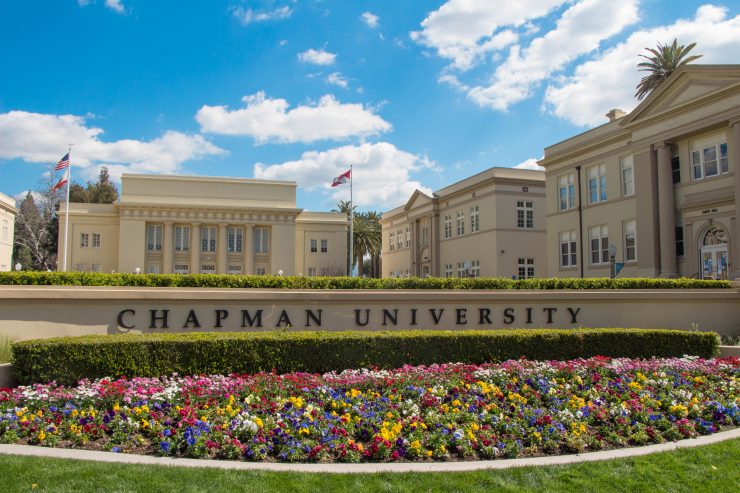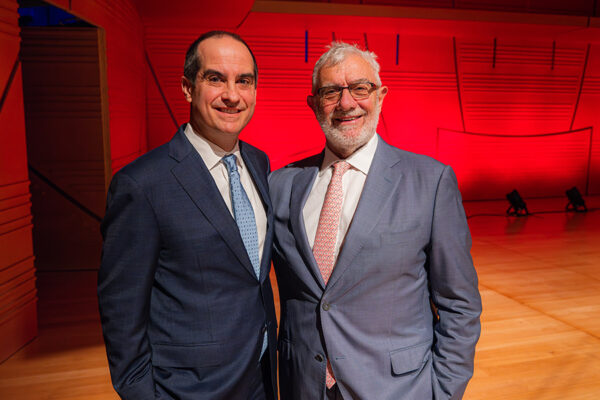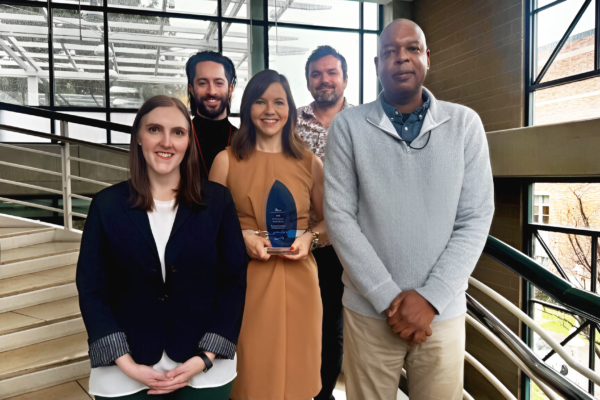There is currently a national conversation questioning Chapman University’s commitment to diversity and inclusion. More importantly, our own students, faculty, staff and alumni are calling into question the culture and climate at our institution.
In troubled times such as these, I believe that calm reflection on specific measurable steps is critical. Steps that concretely demonstrate whether or not an institution is seriously pursuing the ideals of inclusion and diversity. It is easy to claim that we hold those values, but instead let me offer a series of very concrete steps that the institution has recently taken that demonstrates the commitment we have, not just by me, but by our deans, our faculty and our students. And while more can and will certainly be done, I hope these actions will be viewed as a sign that progress is not only possible, but is indeed happening.
Hiring Diverse Thought Leaders and Faculty
In June, we announced real and tangible actions to further our commitment to diversity and inclusion. These actions included the appointment of Vice Provost Lawrence Brown (LB)—a respected Chapman thought leader on the African-American experience—as the Presidential Advisor on Faculty Diversification. Dr. Brown has been provided a $500,000 budget during a time when the university has reduced its budget by over $100 million to respond to the financial impact of COVID-19.
While hiring for the university has been frozen as a cost-saving measure, we’ve moved forward with the appointment of four tenure-track faculty of color including the co-director of the new Africana Studies program in Wilkinson College of Arts, Humanities, and Social Sciences. We have also begun the search process for a new role that will replace the former Director of Diversity & Inclusion position. Provost Pfeiffer announced in June that this critical role is being redefined as a chief diversity officer who will work at the highest level of the institution. The search committee has been formed, has begun its work, and includes faculty, staff and students.
The Panther recently published an update on our efforts, including diversity, equity and inclusion training, which is now mandatory for first-year students and will be taught during orientation week. We are working on a 12-point action plan proposed by Black Student Union (BSU), which Vice President and Dean of Students Jerry Price and I have responded to point-by-point, and we continue our discussions to advance their goals. We are moving ahead quickly with important initiatives that address the concerns of our students and of our faculty and staff so we can continue making Chapman a more inclusive place.
Within the schools and colleges, each dean is committed to taking action as well. While not a comprehensive list, below are several recent examples:
Fowler School of Law
This year, the Fowler School of Law matriculated the strongest incoming class in its history, with the highest median LSAT score and median undergraduate GPA, while also setting the record for its most diverse class with underrepresented populations comprising 52% of the class, including the highest percentage of first-generation college students at 36%.
This success is a result of a comprehensive approach including targeted scholarship programs; partnering with local elementary schools and high schools, as well as community colleges and undergraduate institutions to recruit students from groups traditionally underrepresented in the legal profession; community engagement through legal clinics; an extensive speaker series hosting speakers from diverse backgrounds; and a focused commitment to diversity and inclusion in faculty and staff recruitment.
Over the past two years, the Fowler School of Law has been recognized nationally by the Council for Legal Education Opportunity (CLEO) for its work to achieve greater diversity and inclusion in the legal profession. The Fowler School of Law received a Greater Equality EDGE Award at the end of 2018, and its Assistant Dean of Admission and Diversity Initiatives Justin Cruz received a Diversity EDGE Award at the end of 2019. Fowler Law was one of only 11 law schools to receive the Greater Equality EDGE Award that year.
Wilkinson College of Arts, Humanities, and Social Sciences
Wilkinson College of Arts, Humanities, and Social Sciences Engaging the World: Leading the Conversation on the Significance of Race initiative kicks off in a few weeks, demonstrating a commitment to holding academically rigorous conversations and interrogations about the significance of race in American society in a manner that befits a university interested in serious, intensive academic discussion and dialogue around social justice.
They are partnering with the Fowler School of Law and the Rodgers Center for Holocaust Education for several key events. This programming is linked to their First Year Focus courses which also embrace the theme of Engaging the World: Leading the Conversation on the Significance of Race, and includes topics such as Black Feminism, Anti-Racism, Civil Rights in Constitutional History, From Yellow Peril to Yellow Power, and Speculative Fictions of Race and Ethnicity.
Fowler School of Engineering
Fowler School of Engineering is committed to “attracting the widest possible spectrum of thinkers”, which informs the school’s new Human Centered Engineering scholarship program. Thanks to the support of anonymous donors, 15 students from low-income backgrounds and underrepresented communities will start as Chapman engineering students this fall with 100% of their financial need met.
In addition, Fowler Engineering has added six new faculty members who reflect the school’s culture of valuing multiple perspectives and taking on big challenges from a variety of angles. The group features strong international representation as well as industry experience and educational backgrounds that bridge disciplines such as psychology and communication as well as math and engineering. Five of the six new faculty members are women – particularly significant given that overall just 14% of U.S. engineering jobs are held by women, according to the Congressional Joint Economic Committee.
Crean College of Health and Behavioral Sciences
Crean College of Health and Behavioral Sciences has hired two additional diverse faculty who started August 1, while also building diversity and inclusion further into its curriculum.
- Psychology introduced a new course “Psychology of Bias and Hate,” while Physical Therapy developed “Cultural Diversity and Psychology in Health Care,” which deals with all issues of diversity, equity and inclusion as well as other sociocultural issues in physical therapy and healthcare in general.
- Marriage and Family Therapy held an advanced clinical training workshop on how clinicians can support clients who have experienced discrimination, injustice and systemic racism.
- Physician Assistant Studies, among other actions, created a Diversity Initiative with PA students and Faculty to discuss and implement changes in the program to better address diversity in healthcare, and the PA Professional Practice now includes a panel discussion with racially and ethnically diverse PAs on diversity and inclusion in patient care.
Argyros School of Business & Economics
Argyros School of Business & Economics also has its most diverse class of incoming MBA and MS students with underrepresented populations comprising over 53% of the class. The deliberate and targeted recruitment efforts have shown great success and has led to an even stronger school.
The dean will also have an exciting announcement this week regarding Assistant Director of the Argyros School Career Services Dr. Gabriela Castañeda. You can read more about a panel she moderated in this story about a recent event the Argyros School hosted with the Orange County Hispanic Youth Chamber of Commerce. The event was part of the Women’s History Month celebrations at Chapman, which also included a Women’s Day resource fair, a leadership panel and “Herstories” crash courses.
Dodge College of Film and Media Art
Dodge College of Film and Media Arts has recently hired 16 part-time lecturers of color, including 11 women and nine Black professors who begin this fall, in addition to a full-time Black professor. In partnership with the College of Performing Arts, they have also joined forces with a nonprofit, College Access Partnership, to create a new mentorship program for high-school students of color with the goal of providing a pipeline for future Chapman students.
Chapman University School of Pharmacy
Chapman University School of Pharmacy (CUSP) has committed to and is taking steps to intentionally recruit faculty and staff of color. Also, the student recruitment staff has made improvements to admission requirements and is currently investigating the development and implementation of scholarship opportunities to better serve underrepresented and socio-/economically disadvantaged students.
At the core of CUSP’s mission is “optimizing delivery of healthcare for those with diverse and unmet needs in Orange County.” Toward that end, CUSP students are required to engage in community outreach activities that result in exceptional work with underrepresented populations. Additionally, the new Doctor of Pharmacy (PharmD) curriculum was designed around student learning outcomes (SLOs) that promote diversity and inclusion, and how diverse cultures and belief systems perceive and respond to various health conditions and illnesses, and appropriately address gender and cultural biases in health care delivery.
The College of Performing Arts
The College of Performing Arts (COPA) has emphasized diversity in curriculum for the upcoming fall semester and performance season by setting up a series with performing artists of color who will provide masterclasses for our students. These respected professionals will also be teaching sessions on social justice while sharing their personal experiences. COPA has altered their season to include different authors and composers who provide different points of view, for example by focusing on underrepresented composers in music.
Attallah College of Educational Studies
Attallah College of Educational Studies has taken on the role of educator and has compiled and distributed a list of anti-racism resources for teachers, counselors, administrators and students. They have also leveraged the Panther Experiential Philanthropy Project (PEPP) to engage their students in selecting local organizations for grants. This year, it will allow contributors for the first time to specifically earmark their financial contributions for grants to local Black philanthropic organizations and other organizations that serve the Black community.
The School of Communication
The School of Communication infused diversity further into its curriculum beyond the 2018 launch of a joint degree with Wilkinson College of Arts, Humanities, and Social Sciences in Global Communication and Languages that emphasizes courses and commitment to educating the global citizen from diverse perspectives. The Basic Public Speaking course COM 101 requires speech topics emphasizing diversity and global approaches and issues.
Schmid College of Science and Technology
Our newest dean, Dr. Michael Ibba, who joined Chapman just last month as dean of the Schmid College of Science and Technology has already communicated his priorities to his student, faculty and staff with a commitment to advancing diversity and inclusion. He is also expressed his support for the call-to-action published by Chapman Goldwater Scholars, recognized nationally as current and future leaders in STEM.
The Honors Program
The Honors Program has launched a semester-long seminar on “Institutional Racism in America,” building on the work done by one of our own trustees, Andy Horowitz, and led by director of the Honors Program and Professor Carmichael Peters. They will continue to bring seminars and speakers to address social justice throughout the academic year.
‘This work doesn’t stop’
While we will continue our work to give meaning to our commitment to diversity and inclusion, I think it is important to recognize the work that is already yielding results. With just these few examples I’ve shared today you can see that real action is taking place. People across the Chapman campuses are devoted to inclusion and to advancing diversity. This work doesn’t stop, it doesn’t slow down, and it’s not so fragile that it can be undone by the actions of individuals.
Incidents of division and injustice happen within our community. I cannot stop that. When they happen, I can be personally outraged but at the same time I also have a responsibility as a president to respect all that it means to be a university. Often, our personal values are at odds with what it means to be a part of an academic community. I believe that can and does make each of us stronger. We can call out injustice, we can and should debate, disagree and engage in civil discourse. The strength of our community allows us to rise above the injustice and find our path forward together, while not allowing an individual act to define us or to weaken who we are as a community.
I will continue to work across campus to advance initiatives that will help make Chapman stronger. I will work with our faculty, staff, students, alumni and friends to build on the foundation of our academic community so we can move through these challenging times together. My commitment to diversity and inclusion has never been stronger and I refuse to let the actions of a few define who we are as an institution.




